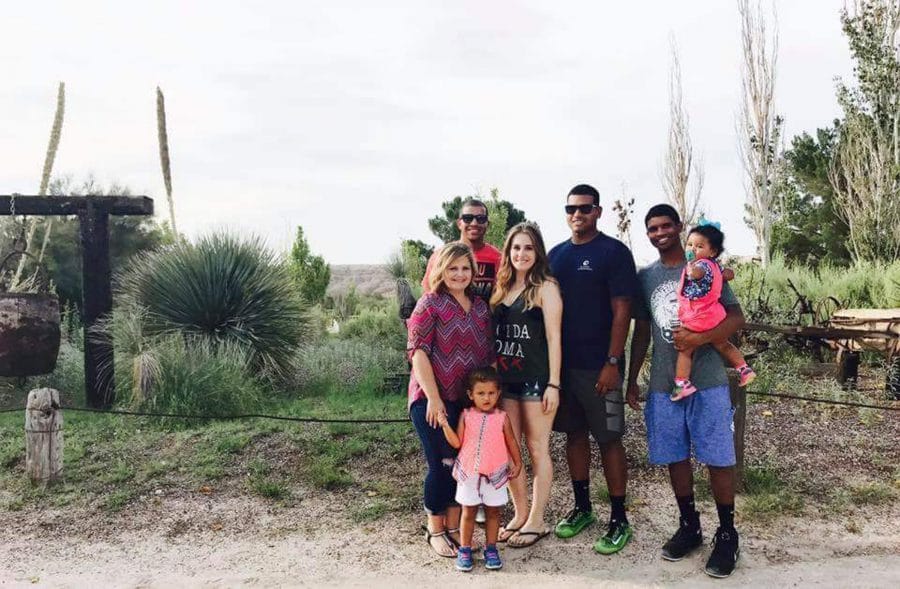Texas educator and Citizen Potawatomi Nation tribal member Stacy Venson’s professional mission emphasizes supporting students with disabilities as well as their parents and guardians. An Oklahoma native, born in Lawton and raised in Eufaula, she is proud of her accomplishments within the Texas education system. Venson credits the support of former teachers, co-workers, family, mentors and CPN tribal scholarships for her successes. She recently spoke with the Hownikan about her management role at the Texas Education Agency. The department oversees public education across the state, and Venson’s role focuses on special education services as well as supporting educators and parental guardians of those with disabilities.

What inspired you to have a career in education?
“I always knew that I wanted to be a teacher. I started my teaching career standing in the bed of my dad’s pickup. While he fed the cows, I taught them the alphabet. I also had many great teachers throughout my education who inspired me along the way.”
What classes did you teach when you were in the classroom?
“In the 22 years I have been in education, I have always taught various areas of special education in both elementary and secondary schools. I have taught special education that focused on educating students with emotional behavioral disorders, functional life skills, resource, vocational skills and inclusion.”
When did you step into administrative roles?
“In 2009, I stepped out of the classroom and moved into central administration in Dallas Independent School District where I coached other teachers on vocational skills and transition planning. I later moved into the role as supervisor of transition services. In 2013, I became the director of curriculum and instruction for special education where I oversaw programming and instruction for students who received special education services. In 2017-2018, I served as the assistant superintendent of special education and special services for the El Paso Independent School District where I oversaw programming for students who receive special education services, Section 504 services and health services. In August of 2018, I joined the Texas Education Agency as a manager in the office of special populations and monitoring in the division of review and support.”
How have your administrative positions compared to teaching in the classroom?
“Both positions are very important, and I have always tried to keep the mindset that I’m a teacher first. The difference is, in administration, I am now teaching and supporting adults who have a direct impact on our students.”
What does it mean to you to be able to serve fellow Texans in your position?
“I am so grateful for this opportunity to be able to support students with disabilities, educators and parents across the state of Texas. Being a mother of a son with a disability, who went through the Texas public school system, it makes me even more passionate about the work we are doing at the Texas Education Agency.”
What is your favorite aspect of your job and career?
“Special education encompasses many topics and programs. This has allowed me to expand my knowledge in different areas within the field of special education. I am always learning something new and staying up-to-date on the latest research and trends. My favorite aspect of my career is teaching others about the many areas within special education. I specifically enjoy providing resources and support to families who may feel like they are alone in the process.”
How many children do you have, and what are their ages? How did you balance a busy career and motherhood at the same time?
“I have three sons, LaBryant (31), Eric (26) and Keeton (24), a daughter-in-law, Amina, and two granddaughters, Kinley and Kendall. My children are all grown, so life is a little easier now. However, as a young mom, times were very difficult. Less than 2 percent of teen moms earn a college degree by age 30. I have always been determined not to be another statistic. With the financial assistance from the Citizen Potawatomi tribal scholarship and support from family and friends, I was able to achieve a bachelor’s degree and master’s degree in special education as well as obtain my administrative certification.”
What does it mean to you to be Citizen Potawatomi?
“My grandmother Viola Martin, a Navarre descendent, instilled in my mother the importance of family and traditions. We were fortunate to have our grandparents, aunts and uncles who would share songs, stories and memories with us that we can pass down to the next generation. Some of those memories we have made at the Citizen Potawatomi Family Reunion Festival.”
How do you stay connected with your Tribal heritage?
“We meet our uncle and cousins from Kansas, Oklahoma and Texas at the reunion where we enjoy the Grand Entry, playing games, eating corn soup and fry bread, and watching my nephew dance.”
If you could give one piece of advice for those looking to start a career in education, what would it be?
“My advice would be for those who are entering the field of education is to develop a relationship with veteran/mentor teachers and get to know your students. Your first year of teaching is the hardest, so it is imperative that you have a mentor that you can go to for support and help. It is also very important that you build a relationship with your students. You can build this relationship by listening and getting to know what is important to them.”
Learn more about CPN tribal scholarships and higher education opportunities at cpn.news/education.
